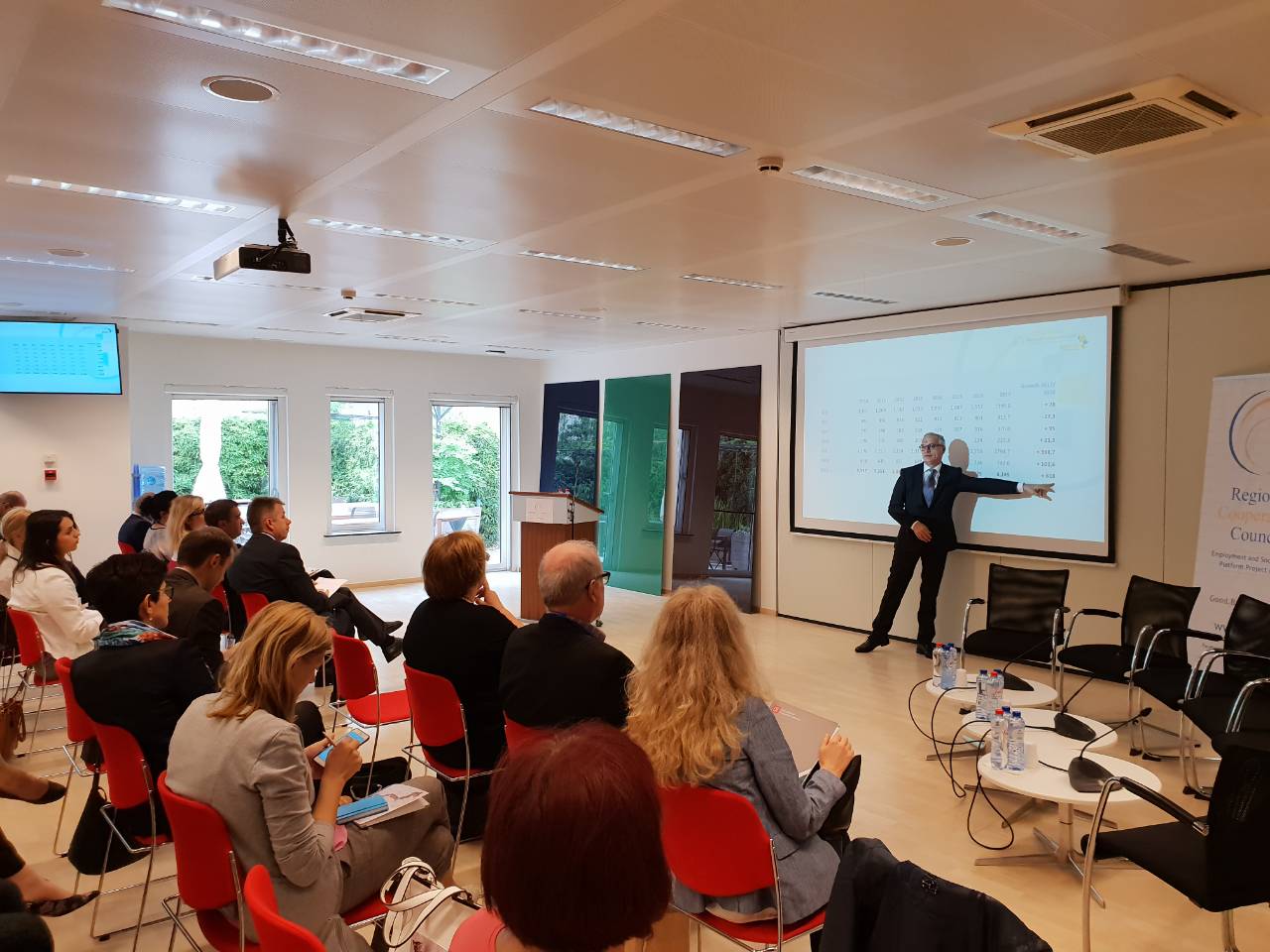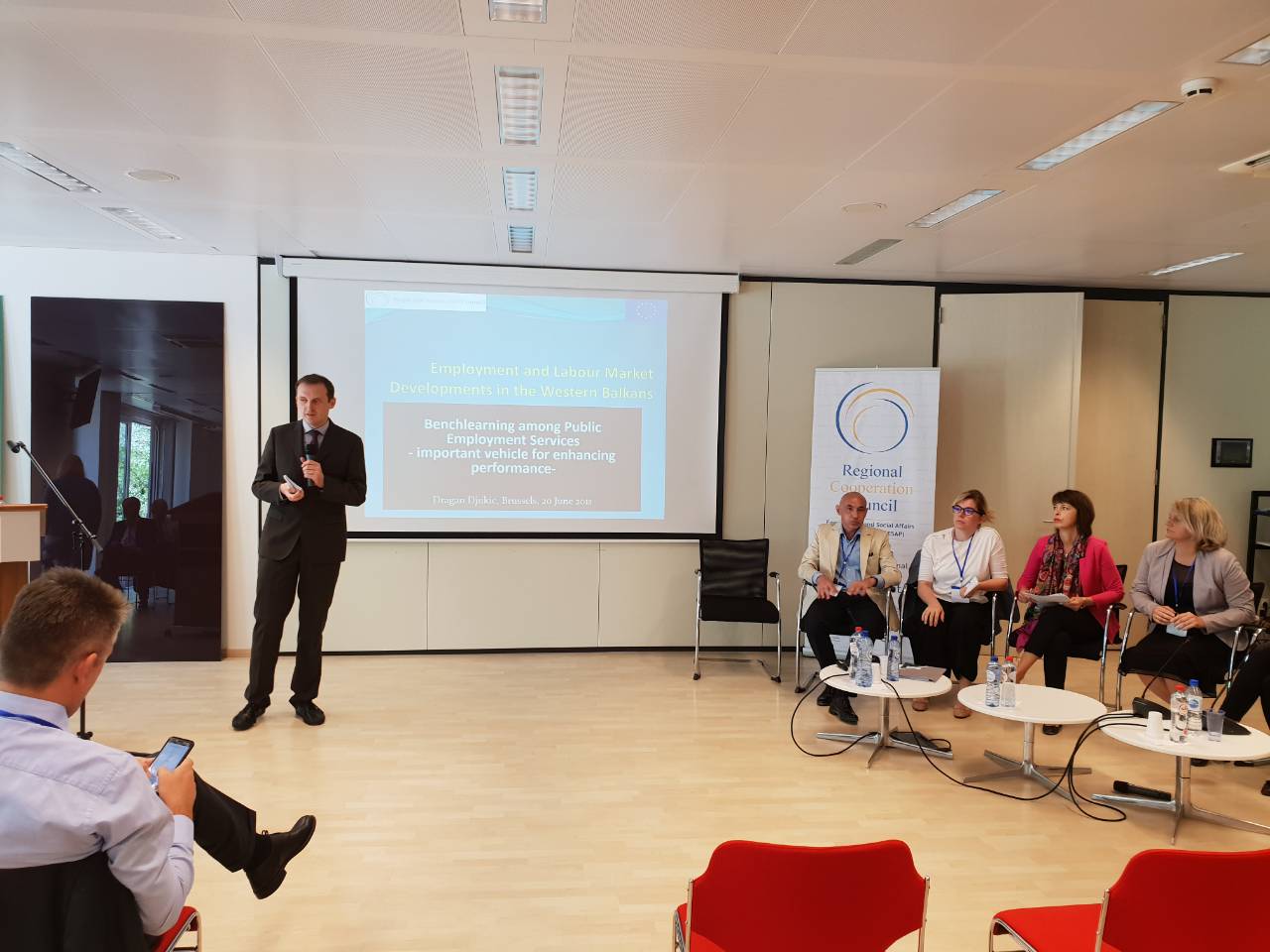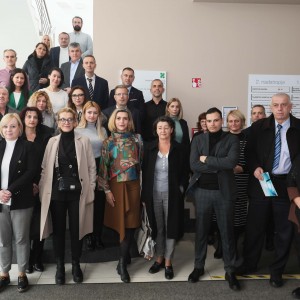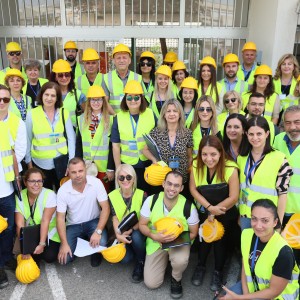Brussels: RCC's ESAP presents Western Balkans employment and labour market trends and developments



Brussels – Regional Cooperation Council' s (RCC) Employment and Social Affairs Platform (ESAP) Project presented in Brussels today employment and labour market trends and developments in the Western Balkans (WB). The policy discussion gathered representatives of WB Ministries of Labour and Public Employment Services (PES), European Commission’s Directorates-General for Employment, Social Affairs and Inclusion, and for Neighbourhood and Enlargement Negotiations (DG NEAR), EU PES, International Labour Organisation (ILO), European Training Foundation (ETF), and other relevant experts.
Opening the discussion the RCC Secretary General Goran Svilanovic said that ESAP has become the key instrument for regional cooperation on employment, adding that it is working diligently to contribute to the enhancement of employment policies, in particular those targeting youth, and building capacities of institutions to deliver high-quality services in a challenging region.
“In recent years, the Western Balkans has experienced substantial improvement in the economic and labour market situation and a steady increase in the number of jobs. Recent World Bank Report and the SEE2020 Strategy’s Annual Report on Implementation, show that the region has added more than 600 000 jobs to the workforce during the past seven years. The positive trend has been most prominent among older workers and among the highly educated, indicating the importance of qualifications and skills for employment.”
Through ESAP, RCC promotes mutual learning and provides demand driven support to the national administrations in developing effective design, implementation and monitoring of implementation of national employment and labour market strategies, policies, measures and instruments. In other words, ESAP supports the modernisation and capacity building process of the Public Employment Services (PES) in the region to enhance their efficiency and delivery to the citizens, as well as to prepare them to participate in the EU PES networks and activities as the accession process advances,” said Svilanovic.
Christiane Westphal, Policy Officer at DG Employment Social Affairs and Inclusion underlined the importance of regional cooperation in the WB, in the area of employment and labour market policies and practices, aimed at strengthening institutional capacities of national administrations. According to her, this cooperation has seen an important boost in recent years, with the development of Employment and Social Reform Programmes in the candidate countries, the inclusion of labour market structural reforms in the Economic Reform Programmes and the activities of the ESAP project that aim to help modernize labour market institutions, strengthen regional cooperation and conduct analytical research from local experts on employment and labour market development in the region.
With this goal in mind that the European Commission funds the ESAP project, implemented jointly by the RCC and International Labour Organisation (ILO) in WB economies and which works to enable them to develop and effectively implement labour market and social policy reforms in their EU enlargement process.
Making an overview of employment patterns in recent years, Prof. Will Bartlett highlighted the recent improvements in labour market outcomes, which still have low participation of women, youth and people with lower levels of education. Bartlett said that there were labour market limitations in the region, in terms of adverse demographic trends and skills gaps on the supply side and relatively low investment rates of the private sector on the demand side. Additionally, active labour market measures need to be well designed with a focus on supporting the inclusion of vulnerable groups in the labour market.
The RCC, together with ILO, have been implementing the EU funded regional project Employment and Social Affairs Platform for more than 2 years now. As a part of RCC support to the development and enhanced implementation of employment policies in the region, the Ministries of Labour and Social Affairs have selected 6 priority regional measures of key importance to all regional economies - youth employment, employment of persons with disabilities, self-employment programmes, local employment partnerships, internship programmes and on the job training. Exchange of experience at the regional level around aspects of design, implementation and monitoring of these measures is exposing stakeholders to good practices and helping them incorporate aspects of such practices back into their national contexts.
Additionally, the Public Employment Services have conducted a structured and systematic reflection on their performance and taken a close look at the drivers that enable good performance and service delivery. Based on this analysis, strengths and areas for improvement have been identified, around which ESAP will support transfer of knowledge and joint learning activities.


